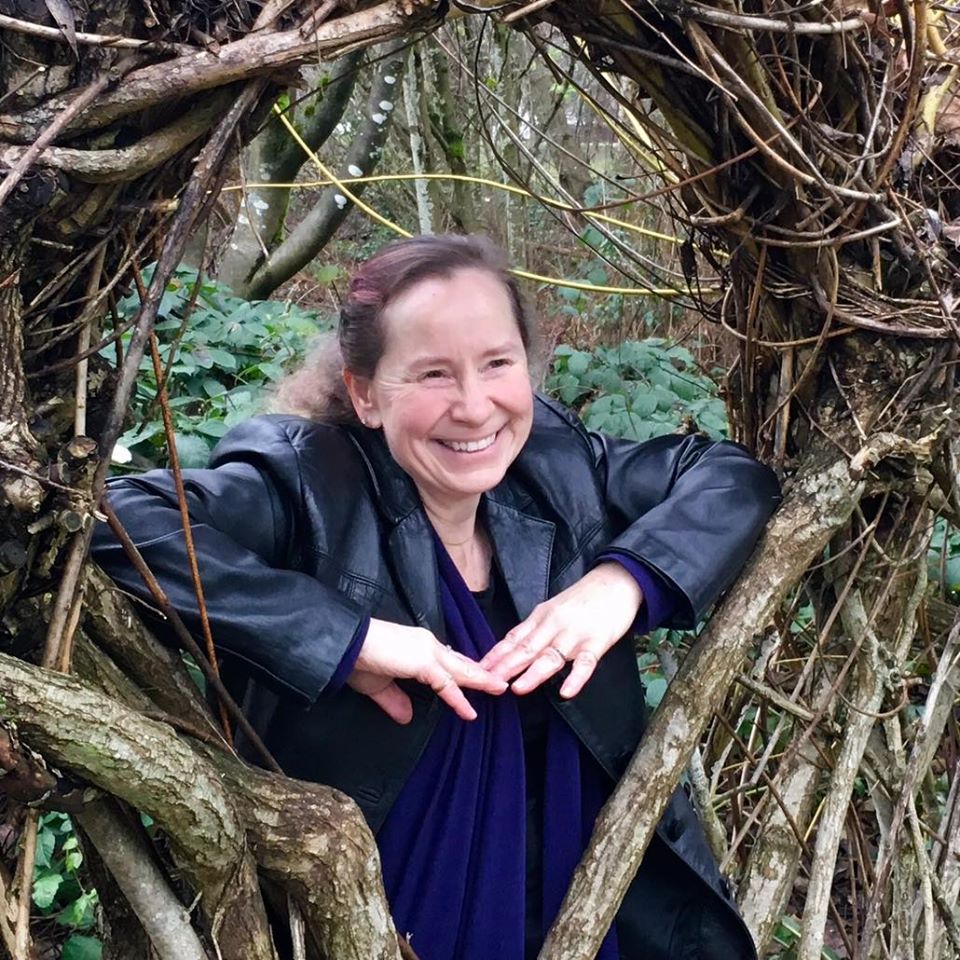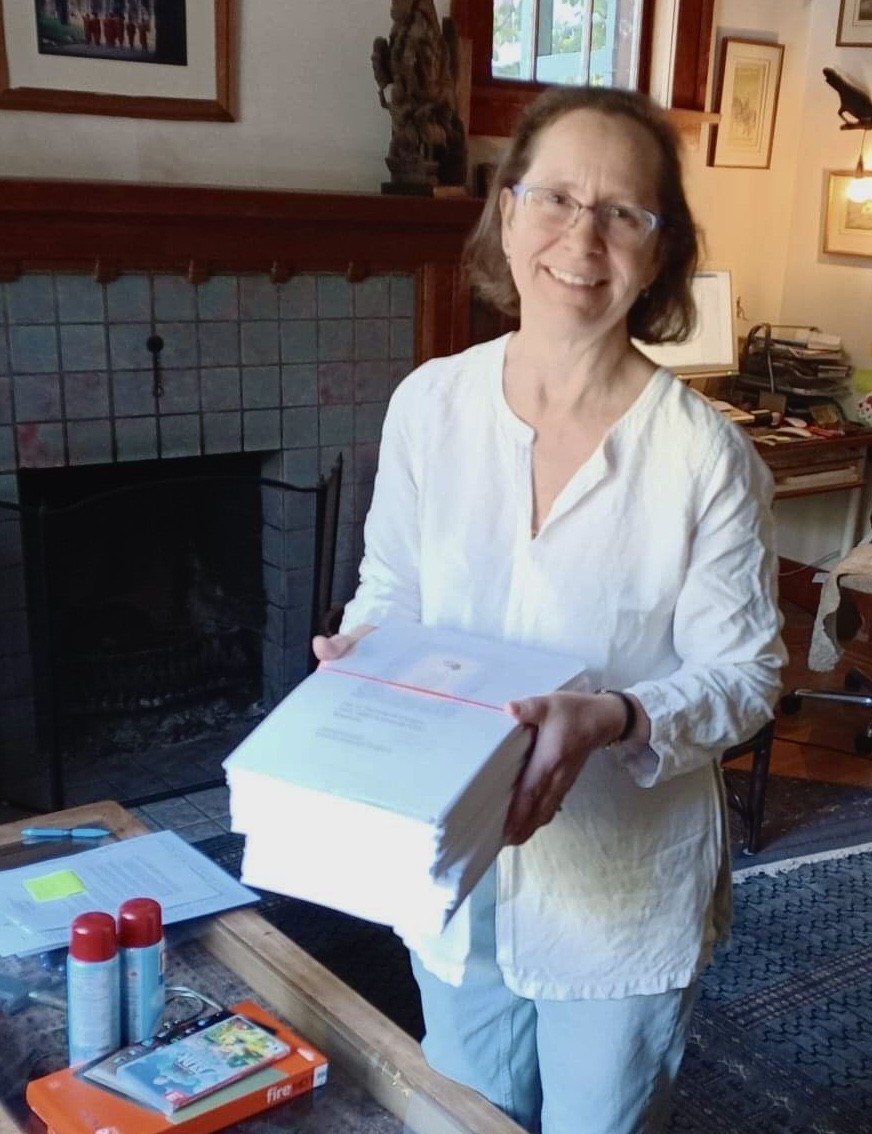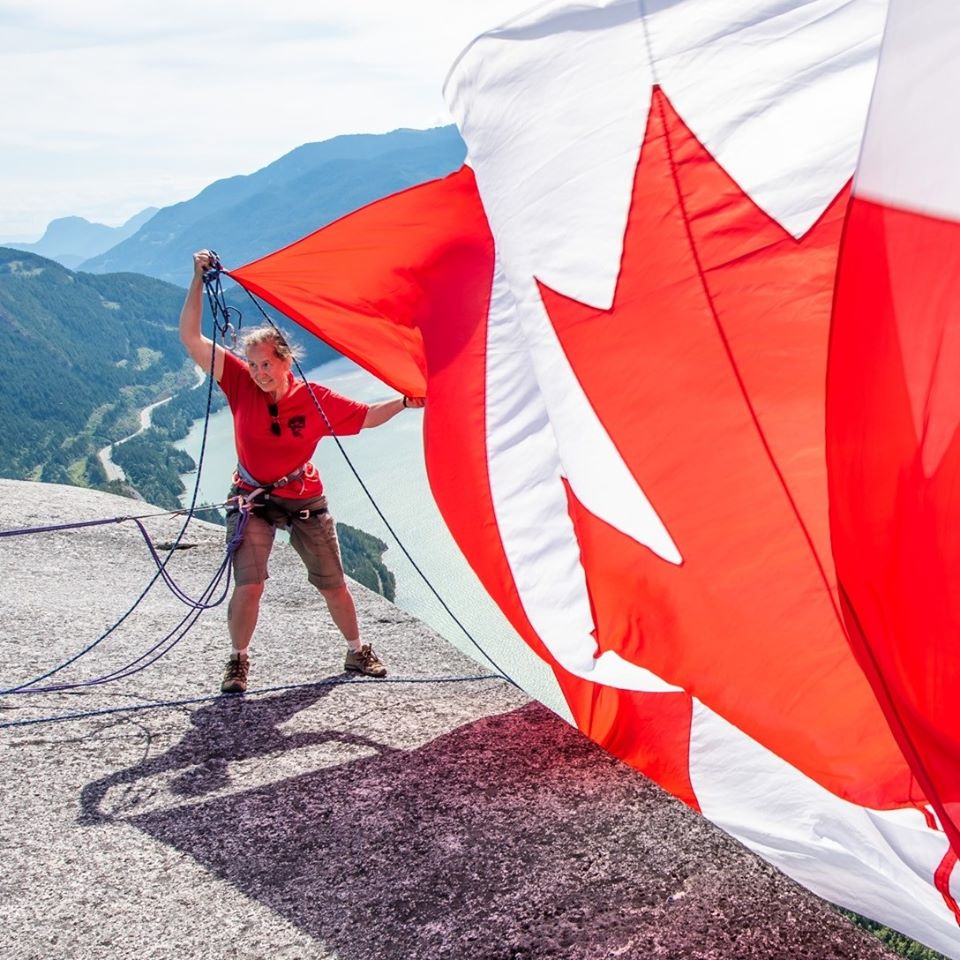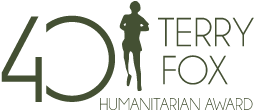Karyn Huenemann, 1984 TFHA Alum Story

Karyn Huenemann
1984 TFHA Alum
Current Job
Freelance Editor and Project Manager, Canada’s Early Women Writers

It is Karyn’s belief that we are here on this earth for others.
Education Background
Pictured: Karyn with the 2100-page St. Petersburg Diaries of Anna McNeill Whistler that she edited for Dr. Evelyn Harden. It was published in 2023 by SFU Digital Publishing, and is Dr. Harden’s life’s work. Karyn also created an HTML second edition version which is being updated with Evelyn’s changes as she goes through her research getting rid of papers and finding more to add. They are both very proud of it.
Celebrating Canada Day at the top of Squamish Chief
Karyn is a devoted mother to her neurodivergent daughter and personally suffers from me/cfs (myalgic encephalomyelitis/chronic fatigue syndrome). Nonetheless, she volunteers where and when she can and continues to push herself physically.
“When your goal is others’ needs, it is possible to push past your own hardships.[…]”
A few years ago she joined a friend on a climb to the top of Squamish Chief. Although it was the limit of her ability that day, and was “SCARED OUT OF MY TREE!!!!” she couldn’t miss the opportunity to join him in flying the flag he made atop the massive cliff face that is one of North America’s largest granite monoliths.

Q&A
What direction did your professional career take, and what has been your greatest achievement(s)?
Since Terry ran his Marathon of Hope we have seen many new life-saving advances in cancer treatment. Do you have an area of humanitarian work you are passionate about?
How has the humanitarian area you have worked/volunteered in changed over the years?
